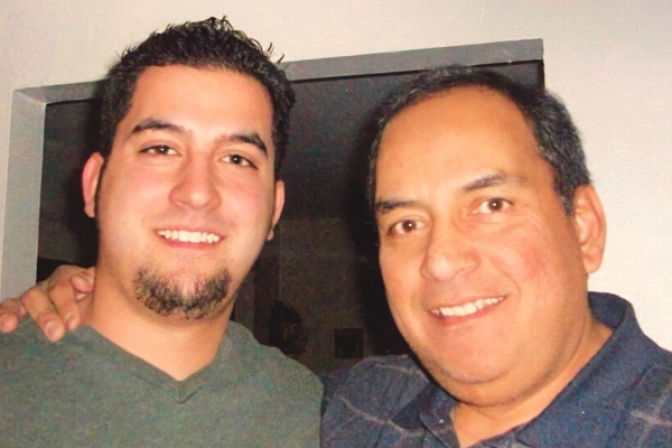On a day like any other, Cheyenne Severence's father, Robert Barns, began having trouble with his vision. He discovered that one of his retinas had detached from damag...
From Childhood Promise to Life Saving Act: A Kidney Donation Story
- English
- Español
October 05, 2023, 8:15am EDT
In 1977, Anthony Lovato was excited to start playing high school football. All he needed to join the team was a simple routine physical, but he didn’t get the clean bill of health that he expected. Instead, Anthony was diagnosed with glomerulonephritis, a type of kidney disease that injures the part of the kidney that filters blood. A few short years after his life-altering diagnosis, he was married to his high school sweetheart, Eileen Patterson and they started a family.
Little did they know that one of their four children Aaron would grow up and donate a kidney to Anthony, giving him eight wonderful years off dialysis.
Growing up around kidney disease
By the time Aaron was born, his father was already battling kidney failure. As Aaron grew up, he was profoundly impacted by watching his father go to dialysis sessions, work through exhaustion, and undergo various surgeries. Even as a child, he wanted to help fix his father.
"When I was little, I used to tell my family and friends I would give him a kidney one day," said Aaron. "All I knew was that my father was getting needles inserted into his forearm three times a week, he was in pain, and I didn't want him to be hurting."
Years later, in 2006, Aaron realized his father had been on dialysis for 17 years and would probably never receive a kidney transplant, so he decided to fulfill his childhood promise.
"I was in college establishing my own identity and trying to secure a full-time job when I came to the conclusion that I wanted to help my father. I knew that if I didn't, he wouldn't be around much longer," Aaron said. "I was laying in bed, half asleep, when I heard someone tell me I needed to help. It felt like a higher calling. The next day I began the kidney donor evaluation process and was deemed an excellent donor candidate."
On Valentine's Day, Aaron announced his decision to his parents.
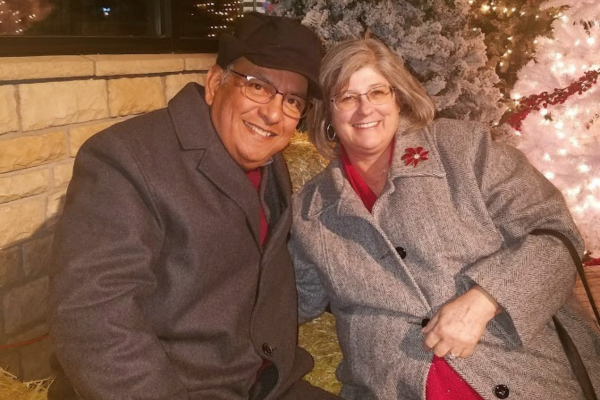
"They picked me up for dinner and I couldn't wait to tell them. From the back seat, I said 'Guess what, I'm going to donate a kidney to Dad. I'm a match.' They were silent the rest of the drive. I think my mom was holding back tears, realizing that Dad was going to get off dialysis and have some normalcy. I think it was unreal for my father to hear. He'd never ask us to do this for him and asked me multiple times if I was sure," Aaron said. "I was sure because I knew it would change his life for the better."
Are you interested in learning more about kidney donation? Take "Becoming a Living Kidney Donor," our free online course designed to help you develop a personal action plan to learn more or start the process.
Donating a kidney
Five months later, Aaron and Anthony were having the transplant surgery.
"During the surgery, the doctors were happy to see that I had an extra long ureter, the tube that carries urine to the bladder. My dad needed that extra length," Aaron said. "They told us it was the best-case scenario and joked that I was born for this."
While Aaron agrees that he was born to donate a kidney, healing from the surgery was more challenging than anticipated.
"At first, I couldn't move. My back hurt and my whole body ached. I was feeling bad but then I saw my dad. He was up and moving so quickly. On the second day he walked through my door and I was blown away by the instant change I saw in him. It was night and day–the color returned to his skin and he looked vibrant. He seemed shocked to be feeling that well and was very grateful," Aaron said. "Seeing him like this was a defining moment for me. I knew everything was going to be okay."
With the help of Aaron's mother, Eileen, both fully recovered.
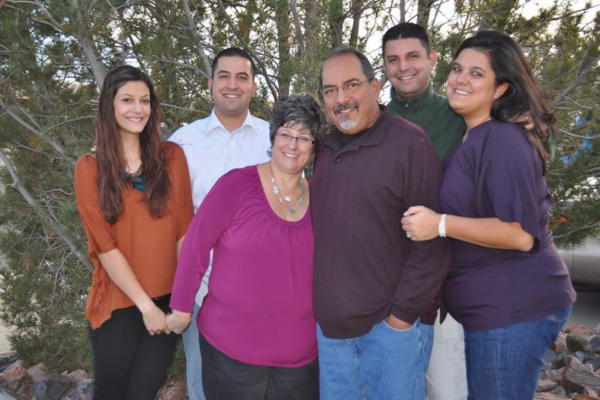
"The day after our donor surgery, she would wait for one of us to fall asleep in our hospital bed, and then run over to the next room down the hallway and check up on the other person. She did this until both of us were out of the hospital," said Aaron." Neither my dad nor I could have gone through this process without my mom. Even after the surgery, she looked after the both of us, helping us recover."
Since then, Aaron's health has been excellent, and he hasn't noticed much difference beyond some slight discomfort around his waist that disappeared after a few months.
"For those considering donating a kidney, I recommend reflecting on why you want to become a living donor. Ensure your decision is based on genuine altruism and a desire to help someone in need. Prioritize your own physical and mental well-being throughout the donation process. Follow all pre-and post-operative instructions, attend regular medical check-ups, and seek support if you experience any emotional or physical difficulties," said Aaron. "Remember to recognize the tremendous difference you're making in someone else's life through your donation."
Anthony enjoyed his new kidney and a more active lifestyle for eight years before it failed and he had to return to dialysis.
Ask Congress to support living donor protections.
Deciding to stop dialysis
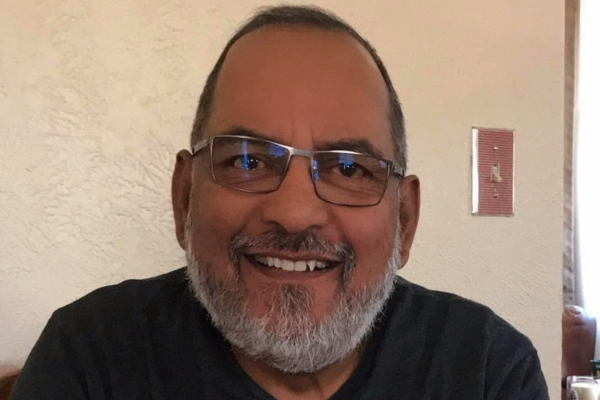
After returning to dialysis, Anthony was diagnosed with congestive heart failure but never let this new health condition dim his light.
"My dad dealt with these challenges with laughter–we always had laughter in the house," Aaron said. "He spent his time sharing new music with us and enjoying my mother's company."
Then, in the summer of 2021, Anthony's health significantly declined.
"He was in and out of the hospital. He developed steal syndrome, an uncommon complication of hemodialysis that affects blood flow. Six out of his ten fingers were partially or fully amputated. His hands were wrapped in bandages and painful to the touch," said Aaron. "He relied on my mother to assist him, put clothes on him, and help him around the house."
At the end of October, Anthony was admitted to the hospital. After several days of testing, they learned his heart was only functioning at 10%.
"The nurses were flabbergasted at how he was able to sit up and talk with people. He had the option for surgery but it was risky," said Aaron. "Even if that was successful, he would have only gained around 5% more heart function which wouldn't have been enough for him to continue dialysis."
With this news and having spent almost twenty-four years on dialysis, Anthony decided to stop treatment. Learn more about stopping dialysis.
“He arrived home under hospice care on November 1st. My mother, my siblings, and I stayed by his side during his last days making sure he was comfortable and administering pain relief,” said Aaron. “On November 5th, at 3:00 am, he peacefully passed away.”
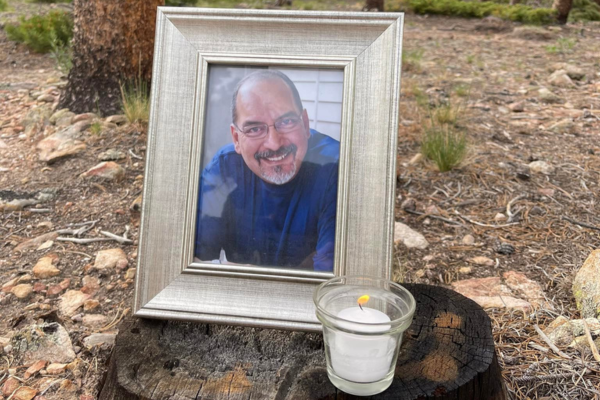
This date held profound significance for Eileen, as it marked the anniversary of her first date with Anthony.
"My mother remained a constant presence throughout his journey. She supported him through surgeries, spent nights at the hospital, and provided unwavering guidance during his amputations,” Aaron said. “She nurtured his recovery, always bringing him back home to our family, and steadfastly navigated numerous life-altering events by his side. Our family considers her a true hero.”
Aaron now keeps his father's memory alive by sharing his story and volunteering with the National Kidney Foundation.
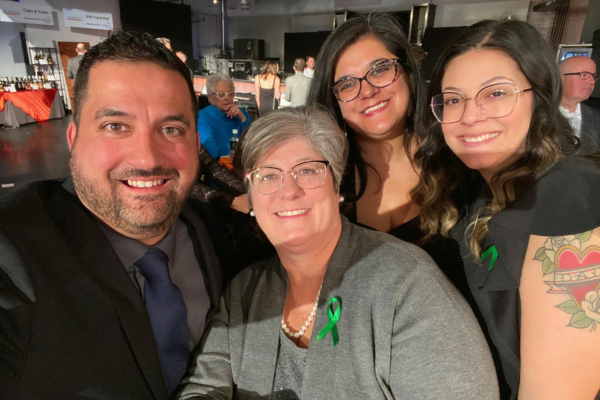
"I grew up watching how my parents loved and took care of each other. With role models like my parents, donating a kidney and volunteering have been easy decisions. They are such a driving force behind me wanting to help people in need," Aaron said. "Recently, I was part of the logistics and planning committee for the Great Chefs of the West event in Denver. It was a great turnout and we raised a lot of money for the National Kidney Foundation. It was a great way to honor my dad. Every person who volunteered had a tie to someone with kidney disease and genuinely wanted to help put on a great event in memory of someone. It was like being a part of a small family of strangers. I'll continue to volunteer my time and spread awareness about living kidney donation."
There is no "us" without "u”. Learn how you can help win the fight against kidney disease.
Related content
Elizabeth Archuleta had trouble controlling her bladder as a child, but healthcare professionals believed she would grow out of it. Unfortunately, she did not. As she ...

